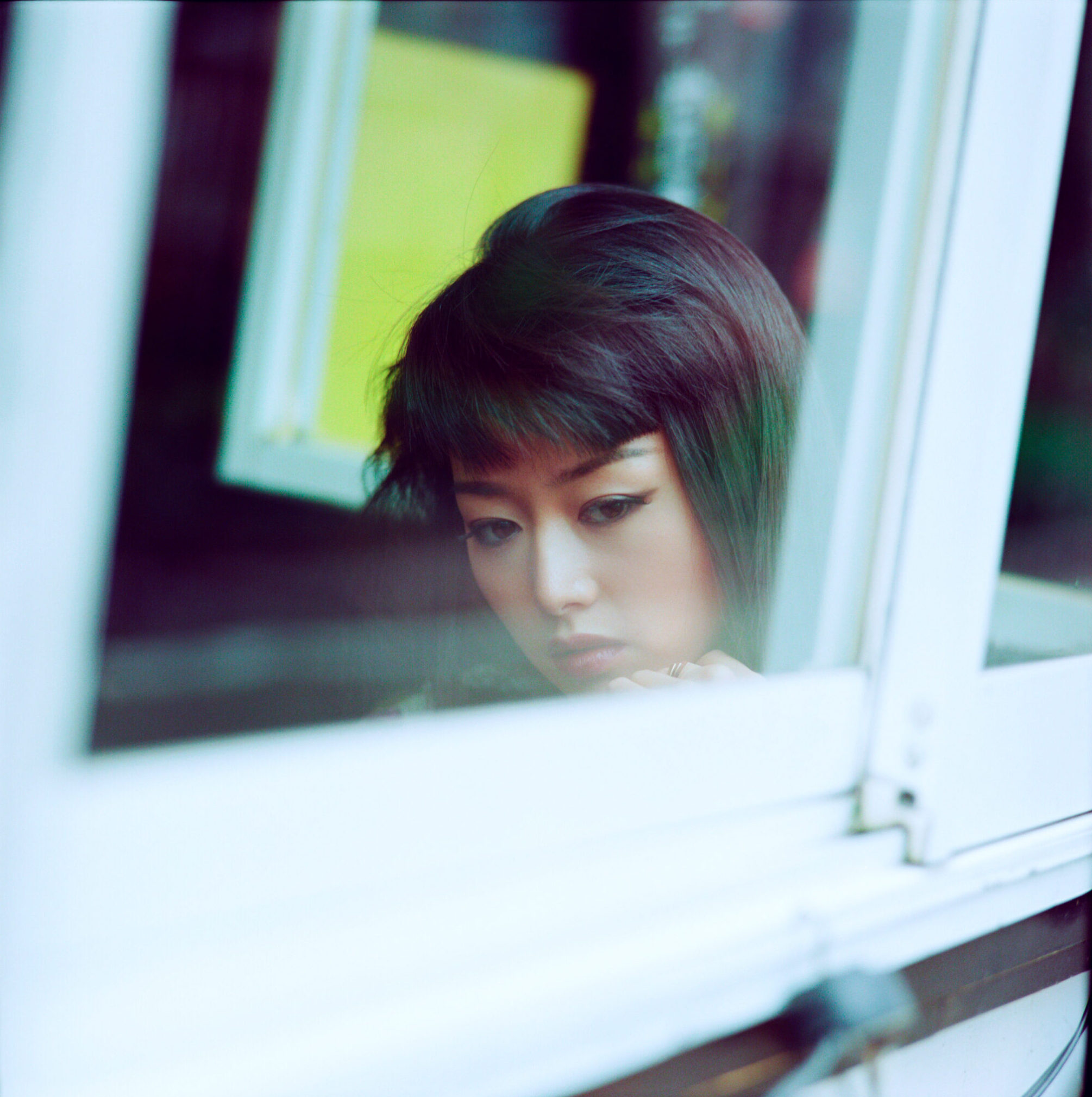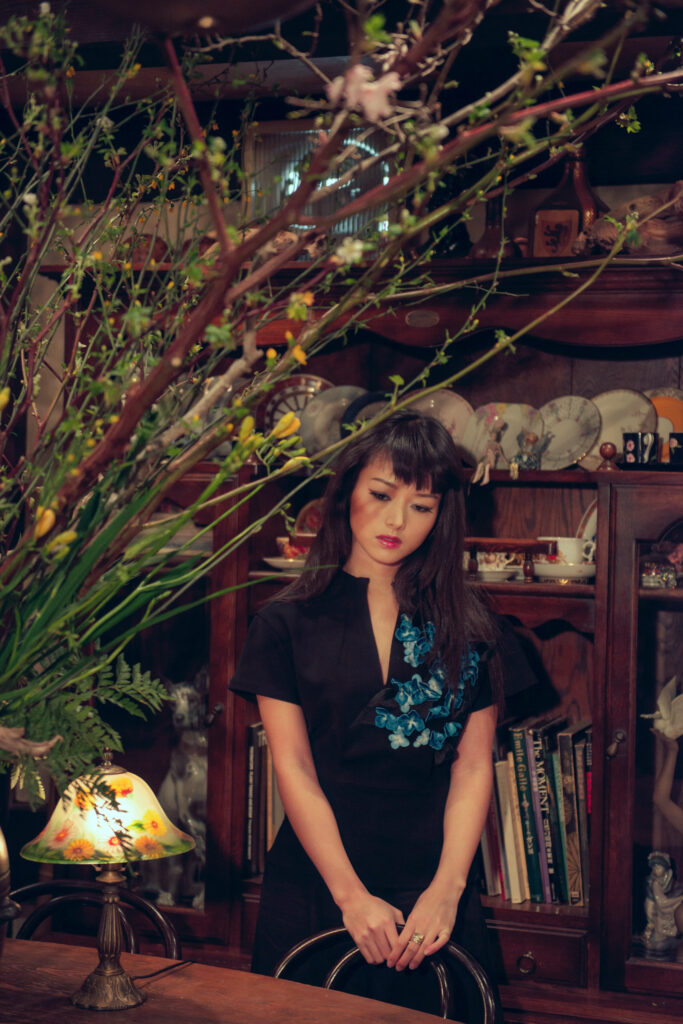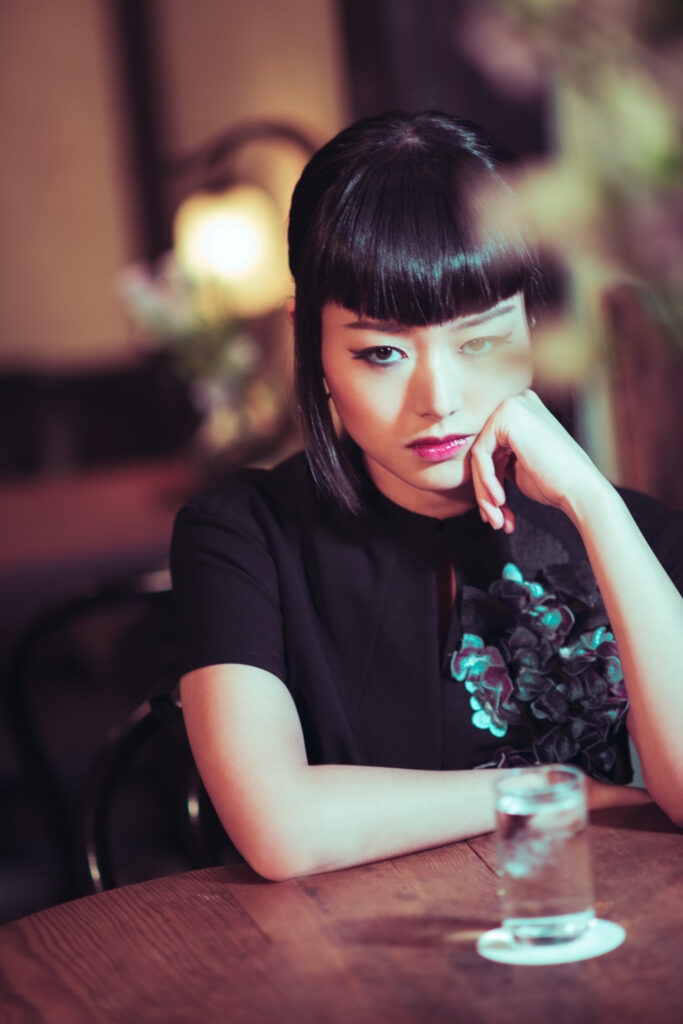The actress shares shares her love for Japan, and what still needs to happen for the queer community there.
Words by Yoshiko Kagoshima
Photos by Tim Gallo
Kiki Sukezane is an openly queer Japanese actress, actively working both in United States and Japan. Born and raised in Kyoto, Japan, she has always been interested in other cultures. After studying in South Dakota, she attended an acting school in Tokyo, then moved to Los Angeles in 2012, to pursue roles in Hollywood. Her first major break was as Katana Girl/Miko Otomo in NBC’s “Heroes Reborn,” and she’s followed that up with roles in Netflix’s “Lost in Space” and “Earthquake Bird,” HBO’s “Westworld,” and more recently AMC’s “The Terror: Infamy.” She currently lives in Los Angeles, California.
Q: What was it like growing up in Japan? Were you aware that you were queer?
Kiki: I’d say I grew up with kind of a typical Japanese mindset, and I didn’t really question my sexuality or anything when I was a child or even as a teenager. I didn’t even think about it really — other than the fact I thought I was rather “boyish.” It just wasn’t in my awareness, or I didn’t even know. In middle school I had a crush on a female student who was senior to me, but that’s kind of common in Japan, where a female student has a crush on, perhaps a more boyish female student, or whatever. So, I never really considered that as “being lesbian,” but now that I look back on it, who knows, maybe it was.
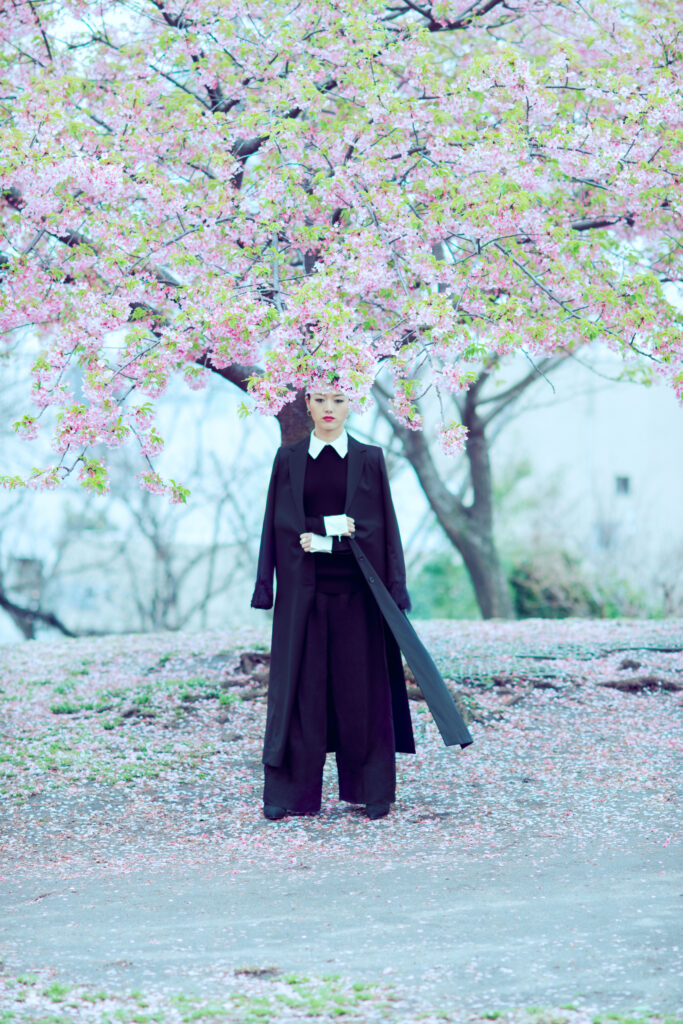
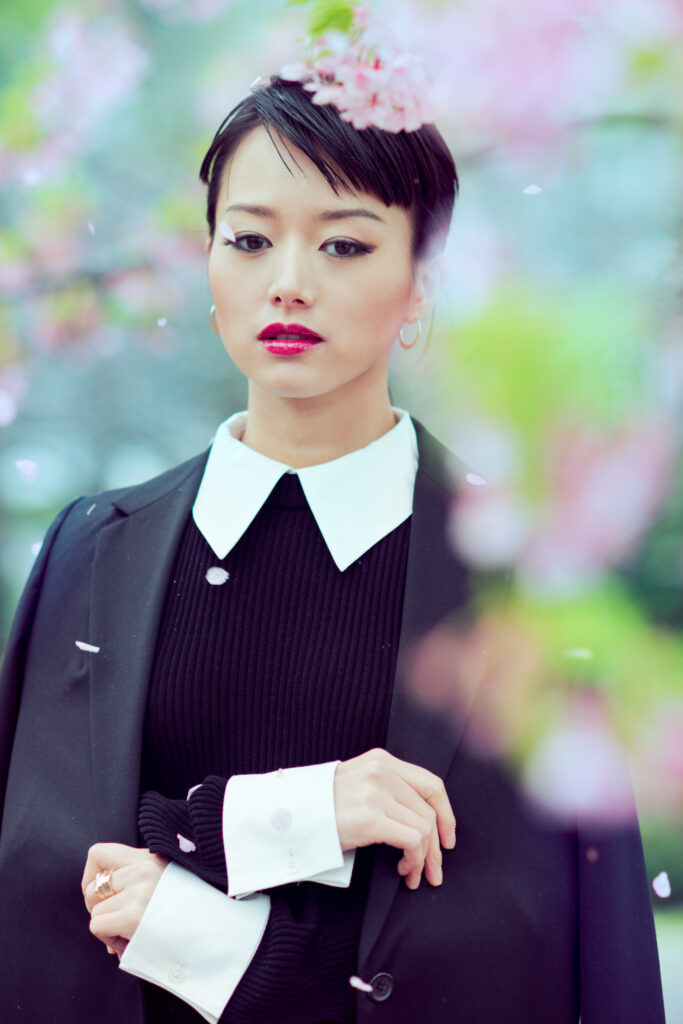
Q: How was it like coming out in Japan?
Kiki: My parents were really supportive when I came out. They are open about these things and had no problem with it. And my friends were like, ‘Oh, we already knew!’, so that was easy, too. My other relatives had a harder time accepting it though, because they were more traditional. But overall, I think I was lucky that I had many supportive people around me, who accepted me for who I was, because that made a huge difference.
Q: What does it mean to be LGBTQ in Japan?
Kiki: I guess it kind of depends on where you live. Being LGBTQ in Tokyo is definitely a very different experience from being LGBTQ in more rural parts of the country. But in general, I think it means that you’re, kind of, not a part of the mainstream in Japan. Except for the entertainment industry, LGBTQ is not really that visible there, you know? It’s a topic people rarely talk about in public. There’s no law that gives equal rights to LGBTQ populations whatsoever, and it’s safe to say that it may not be an easy place to live for the people who want to live openly as LGBTQ. But I feel there are potentially a lot larger LGBTQ populations in Japan — they are probably just hiding their identities or unaware of their true sexuality.
Being LGBTQ in Tokyo is definitely a very different experience from being LGBTQ in more rural parts of the country.
Kiki Sukezane
Q: What are some of the nuances you see around Japanese culture/society and LGBTQ issues that people outside the country may not be aware of?
Kiki: Let’s see, I don’t know how much others outside Japan know about LGBTQ issues in Japan but they might not be aware that in Japan, the belief in traditional “gender roles” is still very strong, such as men should work and earn money for his family and women should stay home, do household chores, and raise kids, etc. I think those kinds of stereotypes make it harder for LGBTQ people to live as a part of the mainstream society there, because we don’t belong in that picture, right?
Also, because LGBTQ presence is not really visible in Japan, many people don’t even know that it even exists. The term “non-binary” is pretty much nonexistent.
On the other hand, it’s not like in the U.S. or some other countries where LGBTQ people may be fearful of their lives, where they get physically attacked or threatened because of their sexuality. That doesn’t happen in Japan. You’d feel safe there, partly because most Japanese are not religious, and because people generally hide, or don’t talk about their sexuality in public.
Q: What do you enjoy most about the LGBTQ community/culture in Japan?
Kiki: I really enjoy going to lesbian bars. It’s something I don’t see often in the U.S., where you can sit down and talk openly and get close with others. I love that close-knit atmosphere. My favorite place is “Bar Gold Finger.” It’s a small lesbian bar in Shinjuku 2 chome, and I really feel at home there.
Q: What are some of the differences and similarities you see in LGBTQ visibility and conversations in Japan and the U.S.?
Kiki: Like I said, LGBTQ is hardly visible in Japan, so I’d say that’s the biggest difference. You almost have to go to specific places to see them, but in the U.S., especially where I live, it’s very visible; we are everywhere, it’s natural to hold hands or kiss in public. In Japan, that doesn’t happen often either in LGBTQ or heterosexual relationships. I’m not sure if there’s any similarities, it’s just so different in Japan.
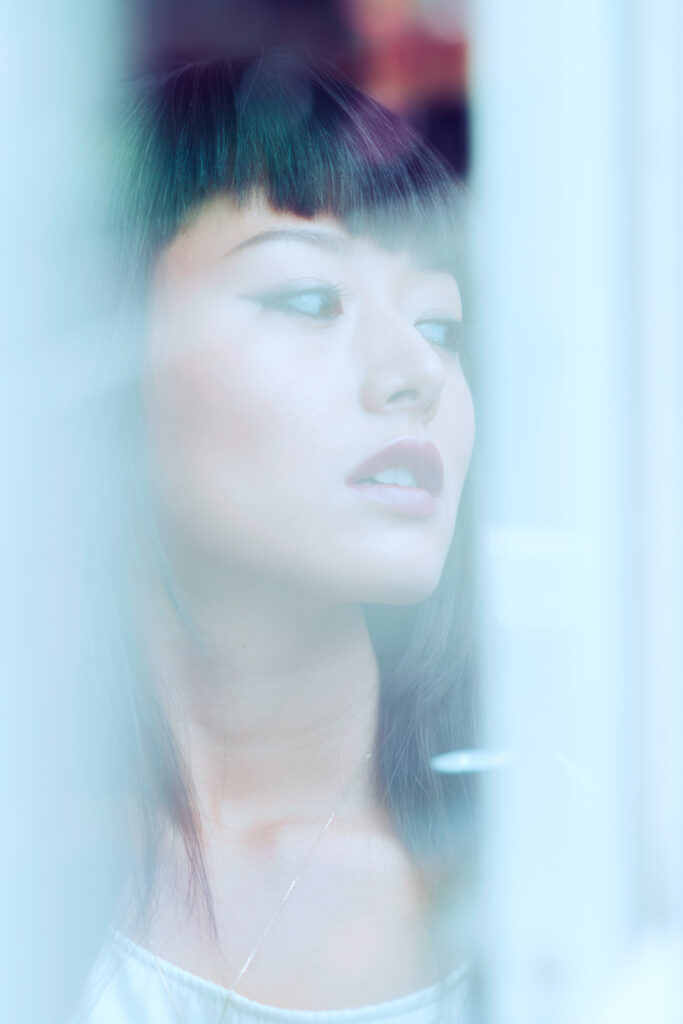
Q: How do you see the community evolving in Japan around LGBTQ issues? What kind of changes do you want to see?
Kiki: I think things are changing very slowly, and people are becoming more aware and open to LGBTQ, in part because more people are using social media and have more opportunities to see and learn other ways of life.
I definitely want to see the legalization of LGBTQ marriages in Japan. Also, I really want the government to be more aware of LGBTQ presence and pay more attention to our needs. For instance, you rarely see bathrooms for LGBTQ populations in Japan, or anything for that matter, and I feel that needs to change.
I definitely want to see the legalization of LGBTQ marriages in Japan. Also, I really want the government to be more aware of LGBTQ presence and pay more attention to our needs.
Kiki Sukezane
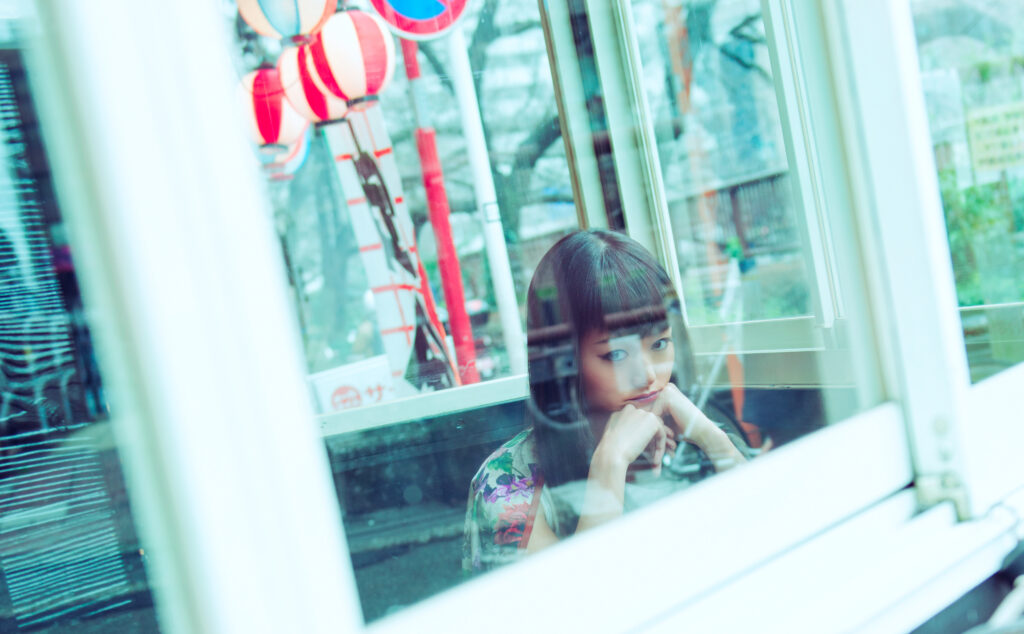
Q: Do you feel that being an actor helps introduce Japan or Japanese culture to foreign audiences?
Kiki: Yes, to a certain degree I believe so. Being an actor in both the U.S. and in Japan, I’m being seen by more audiences and have a platform to speak from.
I recently starred in the series “The Terror: Infamy,” by Ridley Scott, and my role was a picture bride from Japan. It’s basically a horror story, but it also portrays how the Japanese immigrants and Japanese Americans were put in internment camps during World War II; that’s not widely known in the U.S. or in Japan, especially among the younger generations. So as a Japanese actor I’m honored to play a role where I can highlight these historical events related to Japan, and provide opportunities to learn, not just for Americans but for Japanese as well.
Q: Changing the topic to your favorite activity, traveling. What is your favorite travel memory and why?
Kiki: My favorite place to travel is definitely Okinawa, especially Ishigaki Island. People there are so warm and friendly, and so accepting. Needless to say, the ocean is incredibly beautiful, and I love nature — it’s just such a wonderful place to stay, I absolutely recommend it.
Q: Why do you think people should visit Japan?
Kiki: In Japan, we have very distinctive and unique cultures that are worth exploring. There is so much to see and so much to do. Also, in terms of safety, in Japan, LGBTQ people can enjoy a certain freedom that other countries may not offer, where you can go anywhere, walk around and not feel scared for our safety.
Q: Where have you been recently that really surprised you?
Kiki: OK, so I really love islands and I have visited lots of islands in Japan. I recently went to Awaji Island, which is an island in the south, and there was this small museum called “Nazo no Paradise” there, which means mysterious paradise. Basically, it was a museum about sex — but not like in a scientific sense or anything, they just displayed a lot of strange, sexual things like huge penises carved out of wood. I really wasn’t expecting that, so I was a bit taken aback but had a good laugh.
Q: How would you describe the vibe of big cities in Japan, like Tokyo, Osaka and Kyoto?
Kiki: Let’s see, vibe-wise, you can kind of say that Osaka has a friendly vibe and is more open-minded like LA, and Tokyo has that big-city vibe like New York. I have LGBTQ friends who said they had visited Osaka and had a lot of fun there. But you can probably see more LGBTQ cultures in Tokyo. Kyoto is more like a place where you go and explore the traditional Japanese culture and its heritage. The people in Kyoto value their history and culture highly and have a bit of a closed mentality to outsiders, where sometimes first-time visitors get rejected entries to certain places, regardless of your nationality, sexuality, or ethnicity. But that’s just a part of their custom.
Q: Do you have recommendations for anyone interested in planning to visit Japan?
Kiki: Yes, it kind of depends on the purpose of your visit, but if you are interested in experiencing the Japanese LGBTQ scenes, go check out Shinjuku 2 chome. That’s probably the biggest LGBTQ spot in Japan. They have gay bars, lesbian bars, all kinds of LGBTQ spots that are catered towards different LGBTQ wants and needs. You’ll definitely find something fun and unique there!
Follow Kiki Sukezane on Instagram.

